When it comes to maintaining and operating a dump trailer, an often overlooked yet crucial component is the hydraulic fluid. As the lifeblood of your trailer’s hydraulic system, the right hydraulic fluid ensures efficient operation, enhances system longevity, and maximizes performance. This guide will explore the types of hydraulic fluids suitable for dump trailers, their specifications, key benefits, and the factors to consider when choosing the right fluid for your specific needs.
Understanding Hydraulic Systems in Dump Trailers
The Functionality of Hydraulic Systems
Hydraulic systems utilize incompressible fluids to transmit force and perform work. In dump trailers, the hydraulic system typically includes a hydraulic pump, cylinder, and fluid reservoir which work in tandem to elevate and lower the trailer bed. The effectiveness of this system is heavily reliant on the quality and type of hydraulic fluid used.
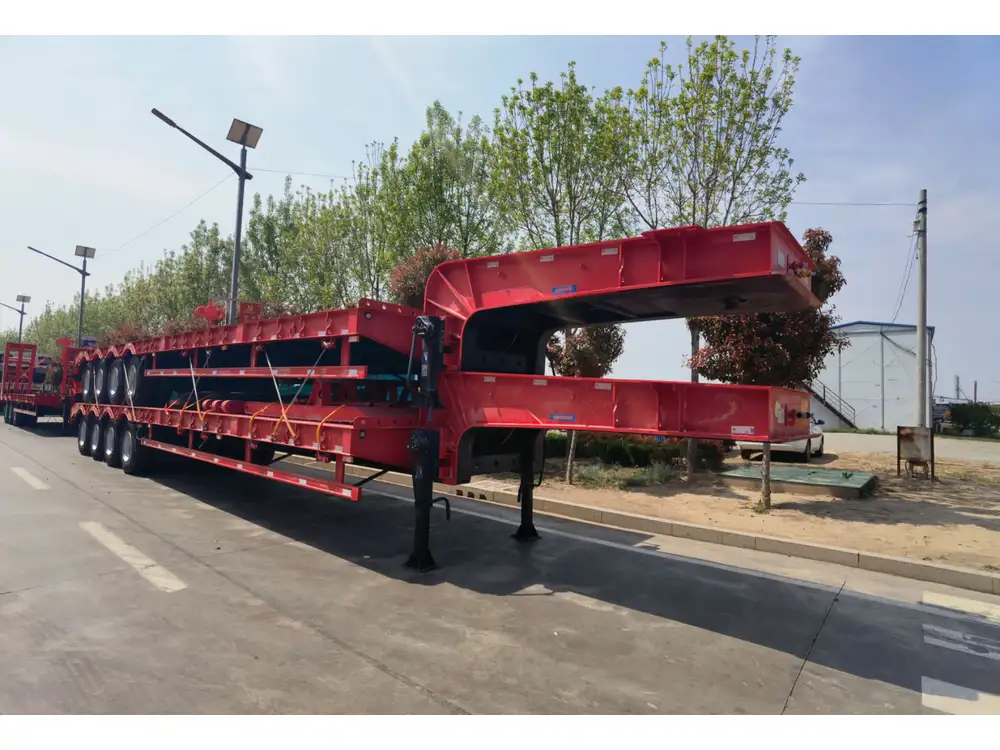
Importance of Hydraulic Fluid Quality
Hydraulic fluid serves multiple purposes:
- Power Transmission: It carries the force generated by the hydraulic pump to the cylinder.
- Lubrication: Reduces wear and tear on the pump and other components.
- Heat Dissipation: Transfers heat away from critical components, preventing overheating.
- Corrosion and Rust Prevention: Protects metal components from environmental damage.
Types of Hydraulic Fluids Suitable for Dump Trailers
Identifying the right hydraulic fluid involves comparing different options based on specific criteria. Here’s an in-depth look at the various types of hydraulic fluids available.
1. Mineral Oil-based Fluids
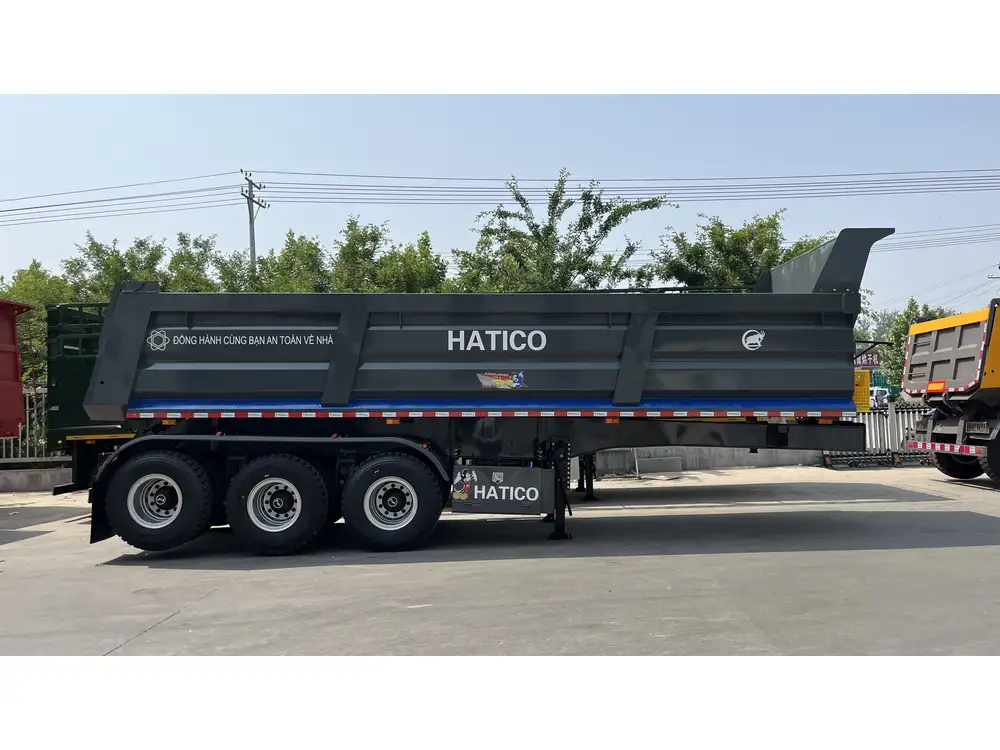
Overview
Mineral oil-based hydraulic fluids are the most common type used in mobile hydraulic systems. They are derived from refining crude oil and are typically augmented with additives for enhanced performance.
Key Characteristics
- Viscosity Ratings: Generally available in a range of viscosity indexes (e.g., ISO 32, ISO 46).
- Additives: Contain anti-wear agents, oxidation inhibitors, and rust preventatives.
- Temperature Stability: Performs well under varying temperature conditions but may gunk up in extreme cold.
Pros and Cons
| Pros | Cons |
|---|---|
| Widely available and cost-effective. | Environmental hazard upon spills. |
| Good lubrication properties. | Degrades over time, requiring periodic replacement. |

2. Biodegradable Hydraulic Fluids
Overview
With a growing emphasis on environmentally friendly solutions, biodegradable hydraulic fluids have emerged. These fluids are typically composed of esters derived from vegetable oils or animal fats.
Key Characteristics
- Environmentally Safe: Break down naturally, reducing environmental impact.
- High Lubrication Quality: Often superior lubrication properties than mineral oils.
- Varying Viscosity: Available in various viscosity ratings.

Pros and Cons
| Pros | Cons |
|---|---|
| Eco-friendly and non-toxic. | Generally higher cost than mineral oils. |
| Excellent lubrication and stability. | Availability might be limited in some areas. |
3. Water-based Fluids
Overview
Water-based hydraulic fluids utilize water as a primary component, often mixed with other substances for enhanced properties.

Key Characteristics
- Fire Resistance: Offers a degree of fire safety in specific applications.
- Viscous Solutions: Usually mixed with anti-corrosive and anti-foam additives.
Pros and Cons
| Pros | Cons |
|---|---|
| Excellent for fire-prone environments. | Lower lubrication quality. |
| Generally safer for the environment. | Not suitable for high-pressure systems. |
Factors to Consider When Choosing Hydraulic Fluid
Selecting the right hydraulic fluid for your dump trailer involves several considerations:
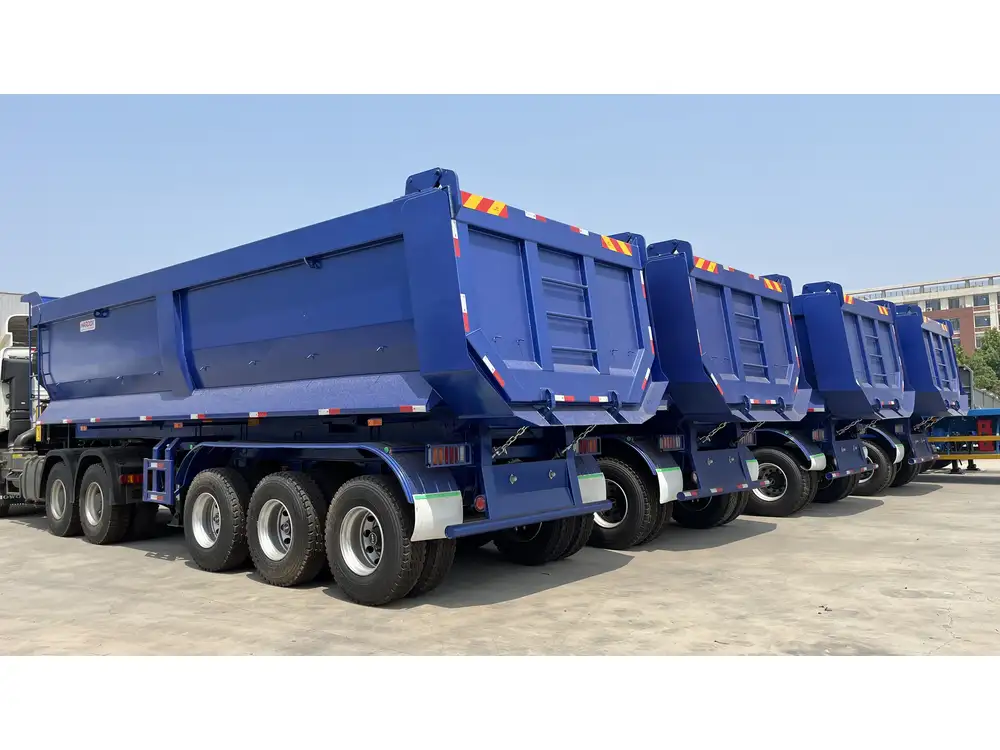
1. Viscosity
Viscosity is the measure of a fluid’s resistance to flow. Selecting the correct viscosity is critical for system efficiency and operational smoothness. One must consider:
- Operating Temperature: Higher temperatures may require oils with lower viscosity.
- Manufacturer Recommendations: Always refer to specified viscosity ratings in the dump trailer’s manual.
2. Additives
Hydraulic fluids are formulated with various additives to enhance properties:
- Anti-wear Agents: To prolong the life of hydraulic components.
- Oxidation Inhibitors: To prevent fluid breakdown over time.
- Rust Inhibitors: To protect metal components from moisture.
3. Environmental Impact
Consider the potential risks to the environment:
- Biodegradability: Opt for biodegradable fluids when operating in sensitive areas.
- Toxicity: Assess the chemical constituents of the fluid to mitigate health risks.

4. Performance Characteristics
Performance metrics include the fluid’s thermal stability, lubrication quality, and compression resistance. Choose fluids that excel in these areas for optimal operation.
Maintenance Practices for Hydraulic Systems
Ensuring the longevity and performance of your dump trailer’s hydraulic system requires diligent maintenance.
Regular Fluid Checks
Monitor fluid levels and condition. Low levels can cause cavitation, which damages pumps and cylinders. Furthermore, inspect for contaminants such as dirt, moisture, or metal shavings.
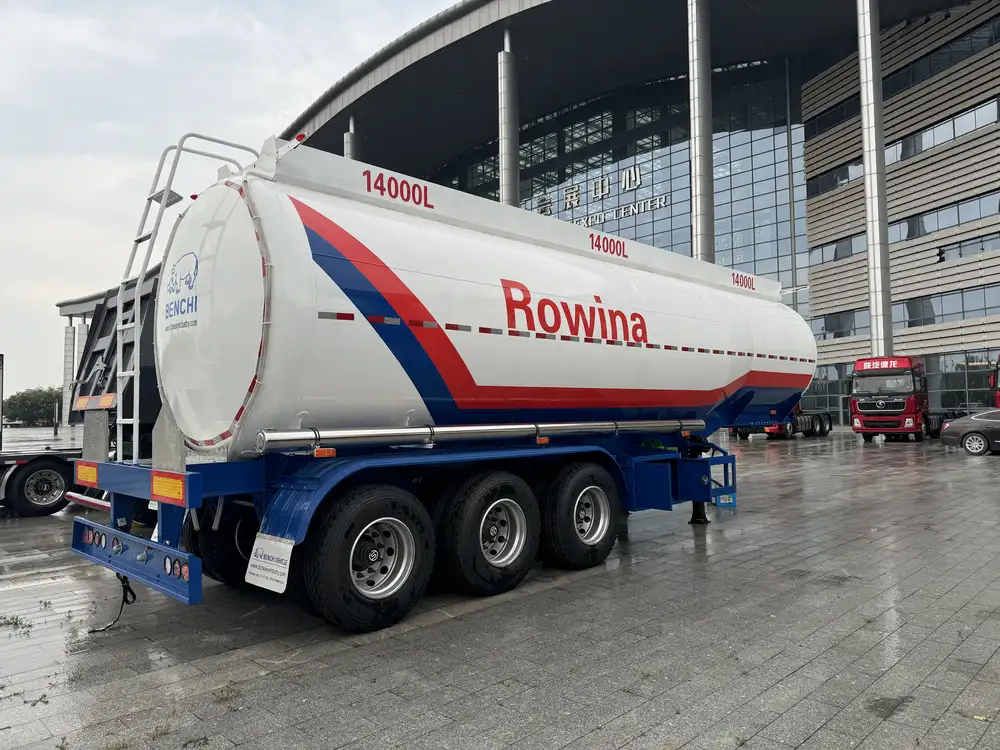
Routine Fluid Replacement
Establish a replacement schedule based on manufacturer guidelines and the specific working conditions of your trailer. A general rule is to replace hydraulic fluid every 1,000 operational hours.
System Flushing
Flushing your hydraulic system is essential if fluid contamination is suspected. Use designated flushing fluids to clear out old fluid and contaminants. Ensure that all hoses and connections are free from blockages for optimal flow.
Common Hydraulic Problems and Solutions
Understanding potential issues can save time and resources. Here are common hydraulic problems and their corresponding solutions.

1. Fluid Leaks
- Symptoms: Loss of hydraulic fluid, decreased lifting power.
- Solution: Inspect hoses and joints for wear and tear. Replace any damaged components immediately.
2. Overheating
- Symptoms: Unresponsive hydraulics, fluid discoloration.
- Solution: Check for blocked cooling vents or too little fluid. Consider using a hydraulic fluid with better thermal properties.
3. Contaminated Fluid
- Symptoms: Abrupt system failures, unusual sounds from the hydraulic pump.
- Solution: Test fluid for contaminants and replace it if necessary. Implement preventive measures like using filters.
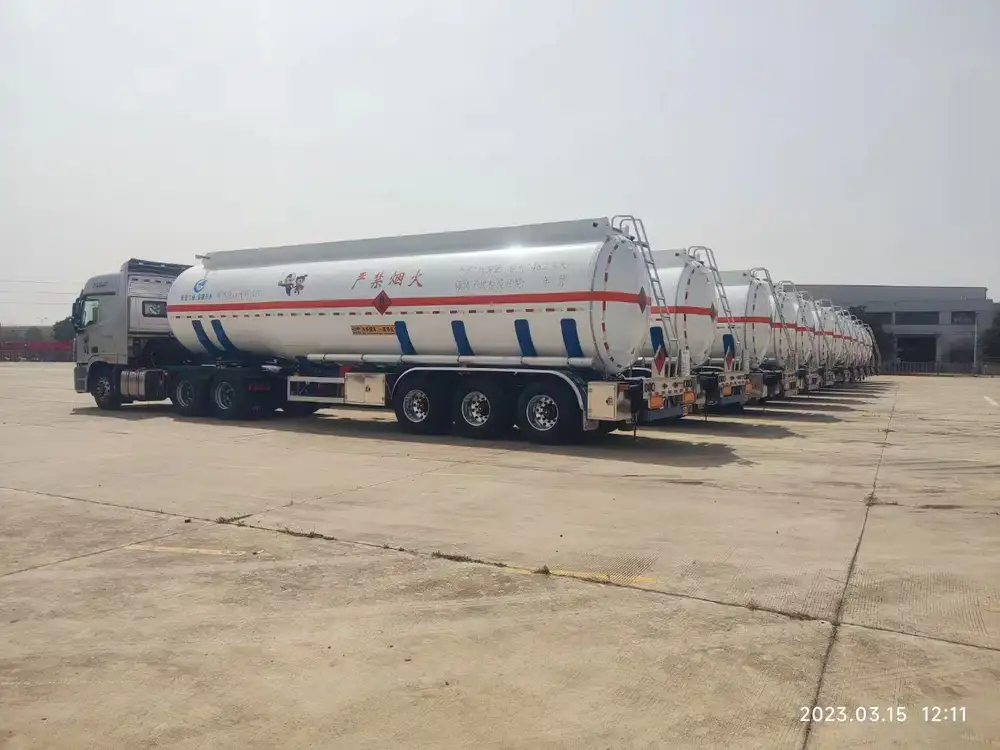
4. Slow Response Time
- Symptoms: Delay in lift action.
- Solution: Check for internal leaks and ensure that there’s enough fluid in the system.
Conclusion
Making an educated choice about the type of hydraulic fluid for your dump trailer can have far-reaching implications for performance and durability. From mineral oils to biodegradable options, each variety carries distinct benefits and potential downsides. By evaluating factors such as viscosity, additives, environmental impact, and maintenance practices, we can ensure long-lasting efficiency and functionality for your dump trailer’s hydraulic system. Regular checks, timely fluid replacements, and awareness of common problems will keep your trailer operating smoothly season after season.
Choosing the right hydraulic fluid isn’t merely a matter of performance but also environmental responsibility and cost efficiency. Equip yourself with the knowledge to make the best decision for your equipment, and your investment will yield dividends for years to come.



